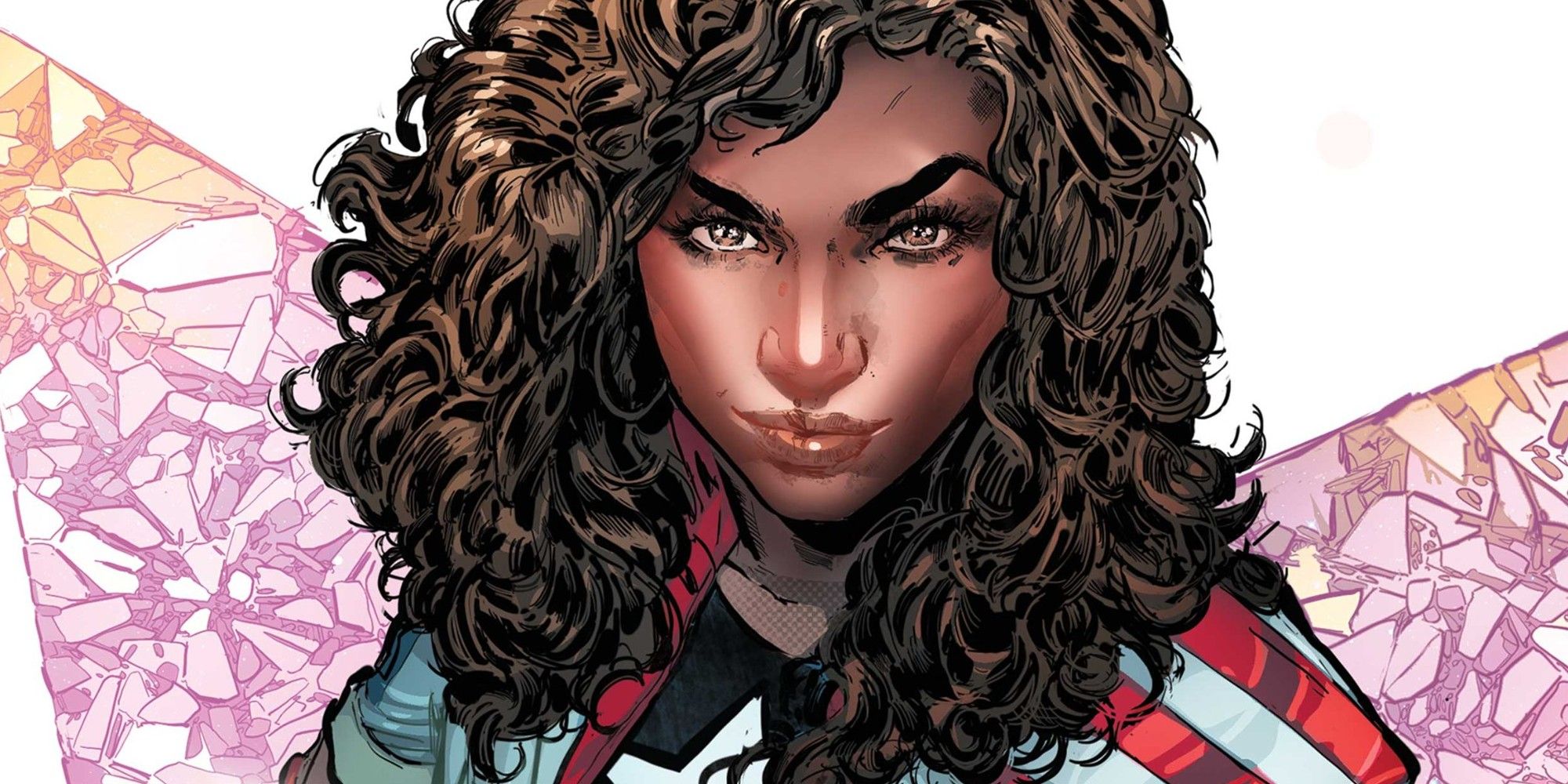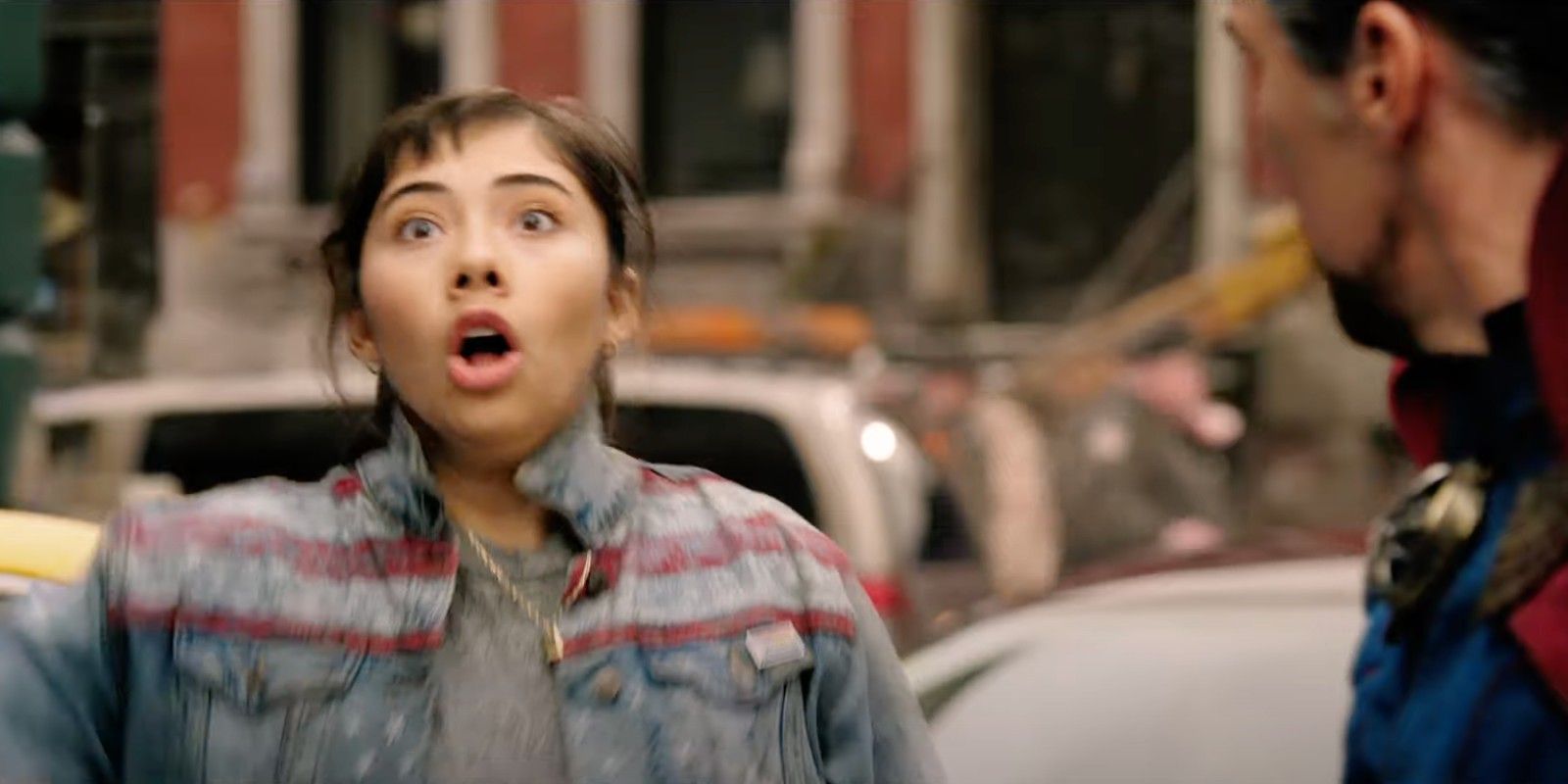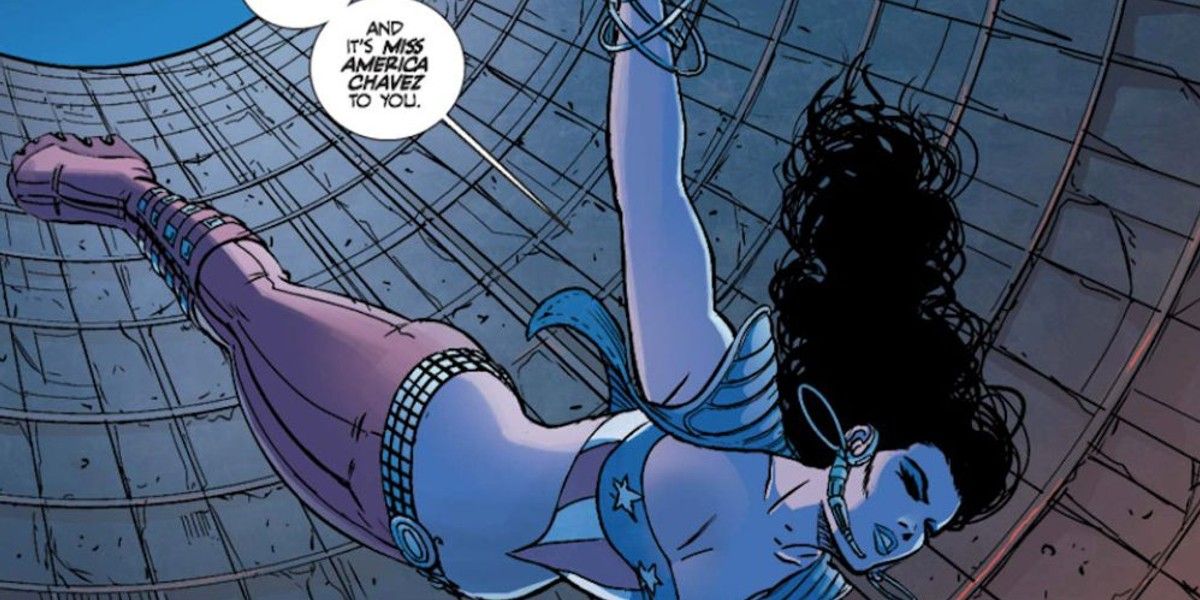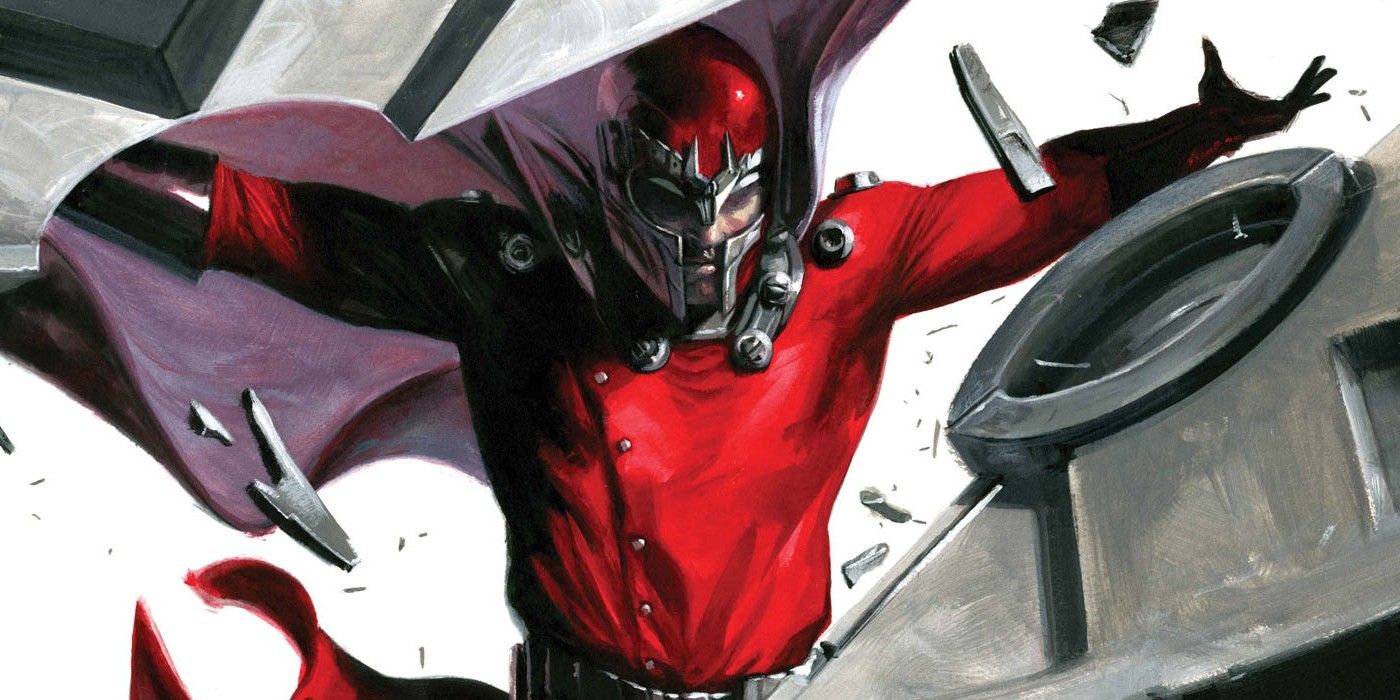The Marvel Cinematic Universe continues to expand, introducing new characters to the big and small screens. While characters who've been a part of Marvel Comics since the early days of the publisher have been staples for these films, recently more contemporary heroes, like Kate Bishop, have started to pop up and play more prominent roles. This looks to be the case for America Chavez, who is set to make her big-screen debut in Doctor Strange in the Multiverse of Madness. Chavez was first introduced back in 2011 with Vengeance by writer Joe Casey and artist Nick Dragotta.
Casey has a long history with Marvel, having worked on some of the label's most popular characters, including the likes of the X-Men, Avengers, Iron Man, and more. He is also a founding partner of Man of Action Entertainment, which has been behind several popular titles, like Ben 10. With Chavez entering the MCU, Casey took the time to talk with CBR about creating the character, as well as his history in comics and entertainment.
CBR: Starting with the woman of the hour, when you were creating America Chavez, what were some of the biggest things you wanted to accomplish with her character?
Joe Casey: One of the reasons why I created her was to try and come up with a character who could stand proudly next to the other classic Marvel heroes like Iron Man and Spider-Man -- a pretty high bar -- and hold her own. I mean, that's obviously what you'd want for any new character in a shared universe.
Another one of my main intentions was to try and create a character that connected with an audience the way that certain characters connected with me when I was a kid. Now, back in 2010, I wasn't entirely sure what that audience would be for a female, Latina superhero, but thankfully the times have caught up with her.
What does America Chavez bring to Marvel Comics that no other character has before?
This certainly isn't unique to America Chavez, but I've always thought that our superhero fiction should, in very fundamental ways, reflect our own reality. Unlike the Marvel Universe that was originally seen in the early 196os comics, our current reality is multicultural. So more recently-created Marvel characters like America Chavez and Miles Morales and Kamala Khan not only reflect the world of 2022, they seem to have connected to a section of fandom that, in one way or another, strongly identify with them. With America Chavez in particular, there's been an emotional attachment happening that seems to have transcended the comics. I'm excited to find out if the moviegoing audience makes that same kind of connection when they see her in the Doctor Strange sequel.
Why introduce America Chavez in Vengeance, and how did that storyline influence who she is?
There was an important aspect to the Vengeance book that dealt specifically with the next generation of heroes and villains, as represented by the Teen Brigade and the Young Masters, colliding with the older generation and deciding to do things their own way. So when it came to America Chavez, I gave her a certain perspective on the Marvel Universe as it existed then. She was someone who'd obviously grown up knowing that world but was personally interacting with it for the first time, and she was suitably unimpressed. For me, her signature line of dialogue was, "You couldn't pay me to join the Avengers." She was determined to follow her own path.
Looking back at Vengeance, what were some of your fondest memories of it?
Vengeance was created as an event book that was never marketed as an event book. Obviously, it didn't have the branding or the hype or all the tie-ins that usually identify a modern event book, but it was big and loud and punk rock in its own way. We were so under-the-radar within Marvel's wider publishing slate, it allowed us to work with an inordinate amount of creative freedom -- not a lot of editorial interference to deal with. As a result, it ended up being a book I'm still really proud of.
How does the America Chavez you created compare to the America Chavez we see now? What's similar and what's different?
I guess you could say there's been a few differences that I've noticed over the years. Some of them I'm nowhere near qualified to comment on with any real authority. Although, here's one I can speak to -- aside from her inclusion in the Teen Brigade, I didn't see her as much of a joiner. To this day, she seems to crop up in just about every new team book that Marvel publishes. Changes are bound to happen when other writers and artists follow you on a character, even one that you created.
That's all part of the beauty of a shared universe of corporate IP. In the best-case scenario, these evolutionary changes can end up deepening a character. Regardless, I'd like to think the core values of the character have survived with each and every evolution. I tried to build her to last.
What makes America Chavez the hero she is?
When I wrote her, I gave her a fierce individuality and a healthy self-assuredness. She wasn't going to take shit from anyone, and she was powerful enough not to have to. Personally, I was fashioning her as the Muhammad Ali of the Marvel Universe, in so far as Ali was a heroic figure for reasons that went far beyond his boxing career.
Did you ever think you'd see America Chavez on the big screen like this? Why do you think she is suited for something like the MCU's Multiverse of Madness?
I think it comes down to the nature of her powers, and the fact that the title of the film contains the word "Multiverse" in it -- seems like a no-brainer to me. I think we all know she's had a weird journey in the comics when it comes to the consistency of her depiction. Obviously, her introduction into the MCU is an opportunity to distill the character down to her basic essence and strip away some of the baggage that may or may not have been weighing her down in the comics over the last decade. I have to be honest, when I created this character way back in 2010 -- a time when we were already well into what became known as "Phase One" of the MCU -- I never even considered that she might actually end up in one of these movies. It's a wild thing to see happen.
With her entering the MCU, are there any characters you want to see her cross over with? If so, why?
Just to see her appearing alongside an iconic character -- iconic to me, anyway -- like Doctor Strange is already very cool. Anyone beyond that would be icing on the cake.
You've worked on a number of heroes in the Marvel Universe, from Iron Man to the X-Men. Which character would you love to revisit and why? If there is a character you haven't tackled yet in Marvel, which one would you love to take on?
I grew up on Marvel Comics, so I'll always have an affinity for those characters. More specifically, I was a big Avengers guy. While I've done a few Avengers-related projects over the years, there's one more that I'm currently angling to do. We'll see if it happens, but needless to say, it's a book that I feel I owe it to my 10-year-old self to try and make a reality.
Outside of Marvel and DC, you also have written independent series, like Gødland and Butcher Baker the Righteous Maker. What're some of the biggest differences between working for a more mainstream, superhero-focused publisher and working on these more indie titles?
The differences are obvious: ownership and control. Everything I've created and published through Image Comics, I own and control completely along with my various artistic collaborators. There's no better deal for creators anywhere in the industry.
Writing your childhood favorites is almost always a gas, but it requires a certain amount of self-awareness as to what you're ultimately there for. You're servicing corporate-owned intellectual properties. I have to say, in hindsight, it was probably not the most sensible career move to create any new characters for Marvel Publishing, considering their spotty track record when it comes to dealing fairly with creators. I obviously have, and sometimes, as in the case of America Chavez, they take on a life of their own.
You also are a founding partner of Man of Action Entertainment, which has had some amazing IPs attached to it, like Ben 10 and Big Hero 6. Are there any current or upcoming projects from MOA you can tell us about? If so, what're you most excited for?
I guess we are "attached to" Ben 10 and BH6, in so far as we created them. As usual, there's plenty of new projects on the horizon from MOA, most of which it's a little too early to talk about, but all of it pretty exciting.
Finally, what can audiences learn from America Chavez?
I think America Chavez -- beyond the thrills she provides as a full-blown Marvel superhero -- represents a simple but specific message to anyone paying attention: Take pride in who you are. It doesn't matter who or what you are, just get out there and be loud and proud.
Doctor Strange in the Multiverse of Madness arrives in theaters on May 6.




